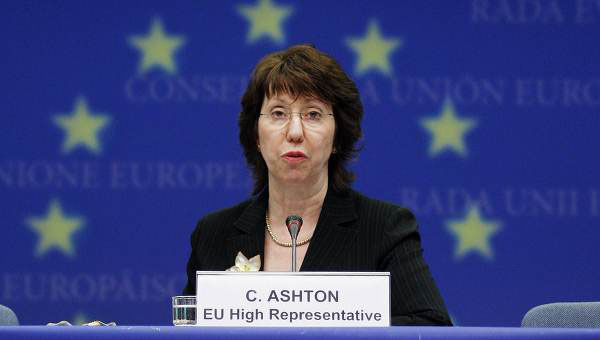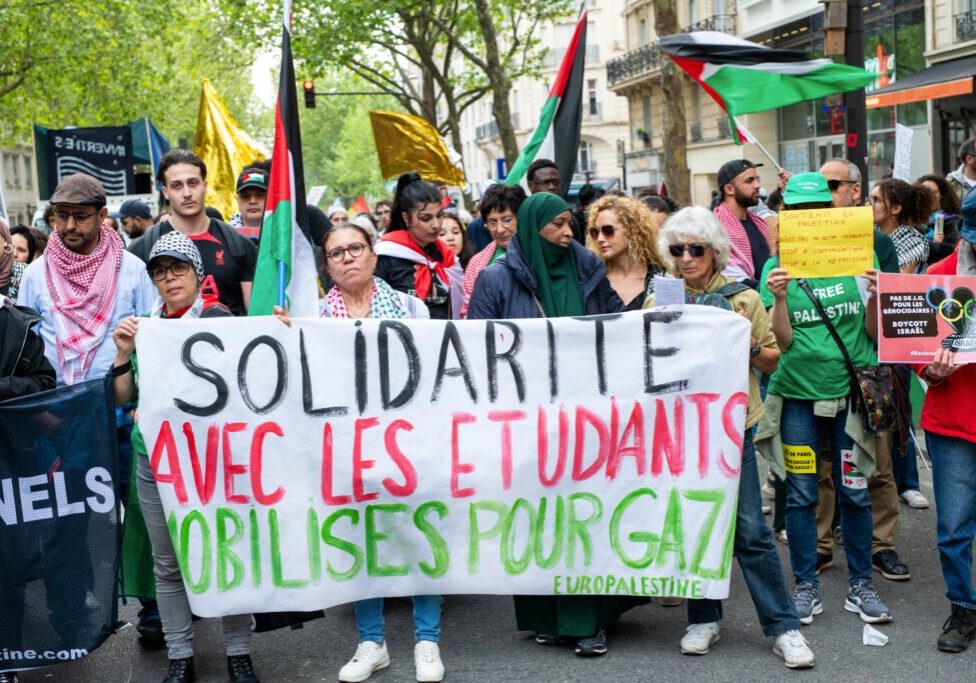Australia/Israel Review
Europa Europa: Catherine the Not-so-Great
May 29, 2012 | Douglas Davis

Douglas Davis
When Catherine Ashton arrived in Israel last month she was carrying an outsized bundle of political baggage. The European Union’s High Representative for Foreign Affairs and Security, who is leading the international talks with Iran over its nuclear ambitions, had ostensibly made the journey to assuage Israeli doubts about the effectiveness of the talks (and to avoid public ridicule).
After a bout of negotiations in April between Iranian officials and the P5+1 group – the five permanent members of the UN Security Council, plus Germany – she spoke enthusiastically about creating a “constructive dialogue”. In fact, the only tangible progress was an agreement to set the date (May 23) for their next meeting. Ashton’s mission to persuade the Israelis that the Iranians were not making monkeys of her negotiators, as they had with earlier European interlocutors, was not crowned with success.
Prime Minister Binyamin Netanyahu did not bother to hide his contempt for her efforts: The Iranians, he declared, were using the talks to play for time while they happily continued to enrich uranium. Similar messages were delivered by Defence Minister Ehud Barak, Foreign Minister Avigdor Liberman and Vice Prime Minister Shaul Mofaz. Barak was blunt: “Israel cannot afford to be duped,” he said, suggesting that Europeans might not mind being rolled over, but that was not an Israeli proclivity.
One subtext to the undiplomatic animosity was an event that occurred in the faraway south-western French town of Toulouse in March when a French jihadist of Algerian descent attacked a Jewish school, Otzar Hatorah, killing Rabbi Jonathan Sandler, his three-year-old and six-year-old sons, Gabriel and Arieh, and eight-year-old Miriam Monsonego, daughter of the school’s headmaster.
Ashton’s immediate reaction, which she delivered in Brussels at a conference on Palestinian refugees, was to compare the attack on Jewish children in Toulouse with “what is happening in Gaza and other places…” She also took the opportunity to remember Belgian school children who were killed in a bus crash in Switzerland, Norwegian youth who were killed by Anders Behring Breivik – and, for good measure, she chucked in the suffering children of the Syrian insurgency.
Not surprisingly, reaction in Israel was immediate and furious: “What gets me especially incensed,” said Netanyahu, “is the comparison between the targeted slaughter of children [in Toulouse] and the surgical, defensive activities of the Israel Defence Forces, which are meant to hit terrorists who use children for human shields.” Curiously, not one of the EU’s 27 member-states saw fit to raise a voice of protest.
If you haven’t heard of Catherine Ashton before, don’t be too hard on yourself. Few people have, even in Europe, where she holds what is arguably the most important political office on the Continent. Baroness Ashton of Upholland, as she is formally known, is virtually unknown.
But in so many ways, this faceless apparatchik is a symbol of the European malaise. A senior politician who has never stood for elective office, she has a CV that records her tenure as Treasurer of the UK’s Campaign for Nuclear Disarmament and member of a local health committee in Hertfordshire. Soon after Tony Blair became Prime Minister, she was plucked from obscurity and catapulted into the House of Lords. Ten years later, when it came to filling the newly created post of EU High Representative, she was pitch-forked into Brussels.
Ashton’s main qualification for the job was that she was not the leading candidate, David Miliband, then Britain’s skilled Foreign Secretary, who might have been a highly effective European Foreign Minister. By contrast, what made Ashton so attractive was that she was considered politically ineffectual and diplomatically inept. Unlike Miliband, she never could (and never would) pose a challenge to the foreign or defence ministers of any EU state.
Don’t just take my word for it. In a poll conducted among 324 senior policy-making officials in Brussels one year after her appointment, 69% ranked Ashton’s performance as “disappointing” or “below average”. Asked to grade European Commissioners on a scale of A to E, only Ashton received an E. Inge Grässle, a German centre-right member of the European Parliament, declared that Ashton is “simply out of her depth… totally on the wrong track”.
The Toulouse tragedy was not Ashton’s debut in Middle East affairs. In fact, her animus towards Israel informed her very first address to Members of the European Parliament in Strasbourg. She declared east Jerusalem, like the West Bank, to be “occupied territory”, demanded that Israel immediately lift the Gaza blockade, and expressed her opposition to the separation fence. All that, incidentally, without having visited the area. Ashton was clearly not seeking to win friends and influence Israelis, but she did have a sharp sense of what would play in Strasbourg.
Quite possibly, you need pay no attention to Catherine Ashton, who recently demanded an additional $75 million to run her fiefdom, even as Europe melts into an economic black hole. But in her role as leader of the P5+1, she embodies that toxic amalgam of pretension, hubris and ignorance which most undermines Israel’s belief in the prospects of international diplomatic attempts to avoid a military conflagration with Iran.
Tags: Europe






